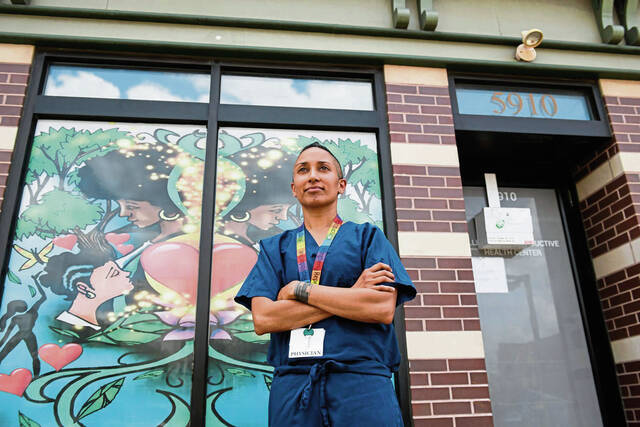Across the commonwealth of Pennsylvania and the country, millions of Americans live within just one mile of an orphaned oil and gas well. These legacy pollution sites are environmental hazards that jeopardize public health and safety by contaminating groundwater, emitting noxious gases like methane, littering the landscape with rusted and dangerous equipment, and harming wildlife. In many cases, communities have grappled with the environmental and health ramifications of these toxic sites for decades and across multiple generations.
Residents of the commonwealth like Mary and Ed Vojtas know all too well that these orphaned well sites negatively impact their family’s everyday life. For decades, the Vojtas family lived with a rusted-out orphaned oil well on their property. As a kid, Mary remembers throwing rocks for fun at the tanks that once helped heat their neighbor’s home. However, when she became the home’s owner, her thoughts on the tanks and remaining detritus from the well shifted to anxiety. Mary, in her own words, “prayed all the time” for the tanks and pipes to be taken off their property.
With funding from President Biden’s Investing in America agenda, the commonwealth received resources to clean this decades-old legacy pollution site off of Mary’s property, which was completed in less than four months.
To date, the Department of the Interior has awarded more than $1 billion to 25 states for this type of work. Historic resources are giving us the opportunity to plug toxic orphaned wells across the country. In fact, since the enactment of the Bipartisan Infrastructure Law in November 2021, states have already plugged more than 8,800 orphaned wells, including over 200 in Pennsylvania alone.
The department recently announced another $76.4 million from the Bipartisan Infrastructure Law for Pennsylvania to clean up even more of these damaging orphaned wells. With this funding, the commonwealth expects to plug approximately 550 wells over the next five years. Beyond improving living conditions for communities and wildlife in close proximity to these sites, this work has also reduced more than 11,530 metric tons of potential methane emissions — a harmful gas that creates smog, damages our health, and rapidly accelerates the climate crisis.
Funding for Pennsylvania to address legacy pollution is creating and supporting quality, family-supporting jobs. We have heard from business owners like Brian Jarvis, who owns a well-plugging service that is spearheading this work across the region. It was Jarvis and his small business employees who plugged the Vojtas family well. When the Bipartisan Infrastructure Law was passed, Jarvis only had 25 employees, and adequate funding to plug wells was hard to come by. However, since the law’s enactment, he has nearly doubled his employees’ wages and has plans to expand his workforce. According to Jarvis, the influx of funds has changed the way that plugging is viewed and has elevated his small business and the important work he and his employees do for their communities.
Jarvis’ story is not unique. In communities across the country, we have empowered state governments and local businesses to clean up our shared environment and provide opportunities for recreation and meaningful, long term economic revitalization. All told, the investments we have made to date are estimated to have supported over 7,200 jobs and contributed over $900 million to our nation’s economy.
These numbers speak for themselves, and we are eager to see how our continued collaboration strengthens our economy and benefits our communities in the years to come.
Addressing legacy pollution is climate action we simply can’t live without. It is our responsibility to address these harmful industry relics and ensure that future generations have access to clean air, drinkable water, and healthy, thriving ecosystems. With these historic investments, we have hit the ground running — and we’re not done yet.
Deb Haaland is U.S. secretary of the interior. Joan Mooney is principal deputy assistant secretary for policy, management and budget.








